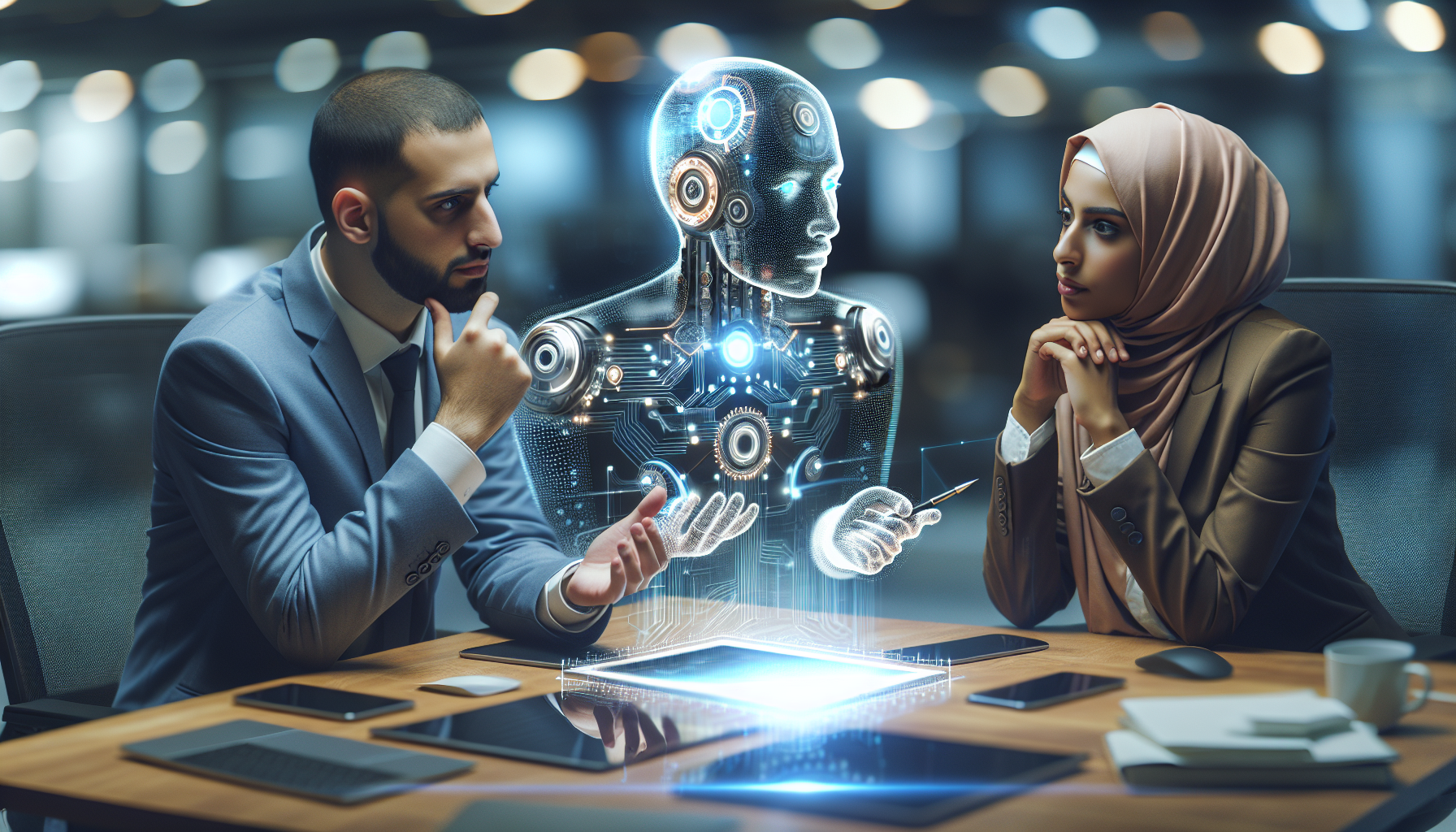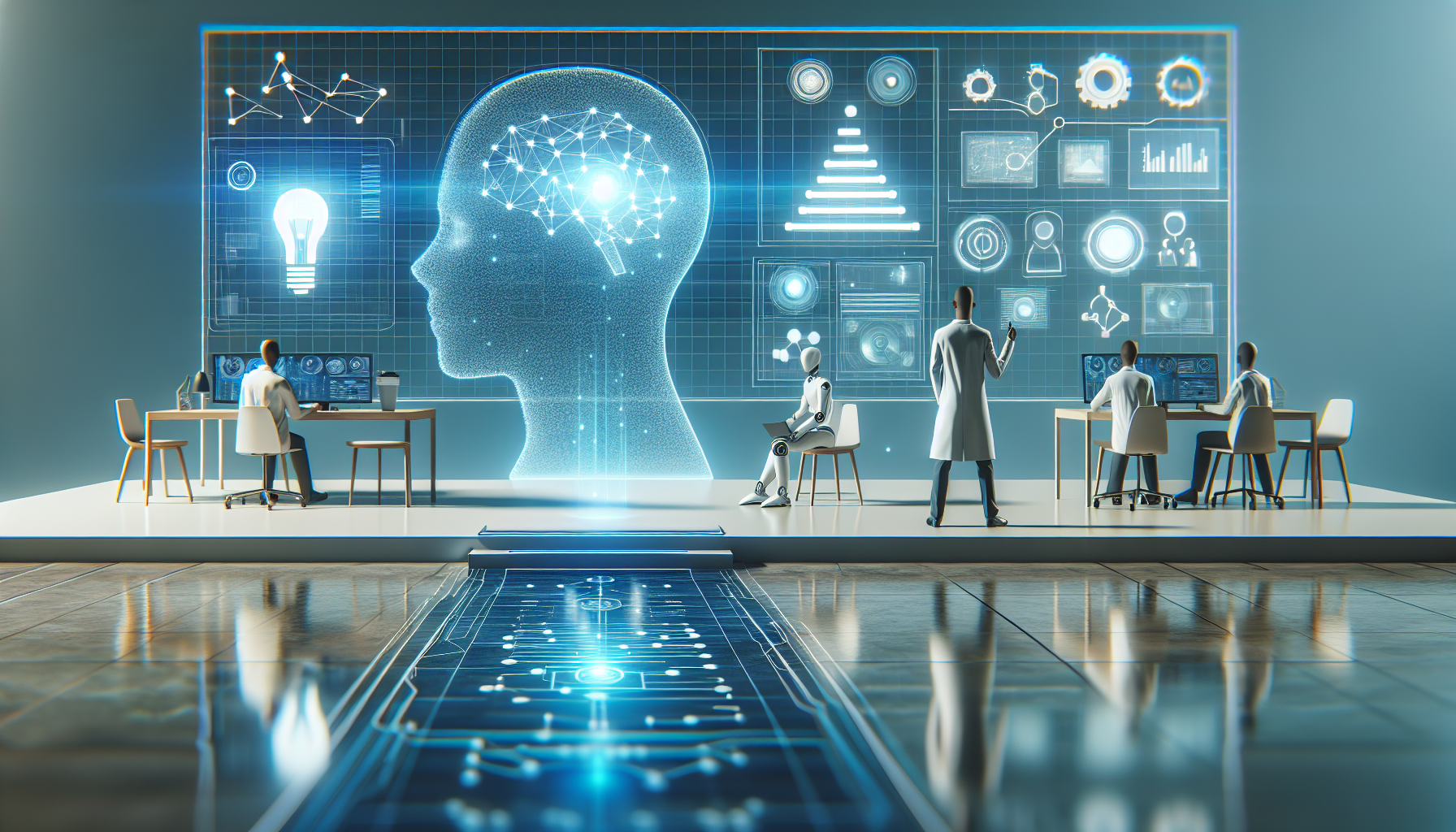
The Psychological Effects of AI on Human Behavior: A Technical Trend Analysis
October 16, 2025
Artificial Intelligence (AI) is reshaping not just industries but also the human psyche, influencing behaviors and perceptions in profound ways. As AI technologies advance, their integration into daily life presents unique psychological impacts that merit closer examination. This trend analysis explores the complex interplay between AI and human behavior, highlighting the psychological nuances of this evolving relationship.
The interaction between humans and AI systems is a fascinating domain where technology meets psychology, creating new behavioral patterns. One significant area of study is the impact of AI on decision-making processes. AI algorithms, designed to optimize choices by predicting outcomes based on vast datasets, have begun to influence how individuals approach decision-making. This shift is most evident in sectors like finance and healthcare, where AI aids in risk assessment and diagnostic predictions, respectively. The reliance on AI-generated insights can lead to an over-dependence on technology, potentially diminishing human intuition and critical thinking skills.
The psychological effects extend beyond individual decision-making to broader societal behaviors. AI systems, particularly those deployed in social media platforms, have a profound impact on social interactions. These systems curate content feeds using sophisticated algorithms that maximize user engagement. While this enhances user experience by personalizing content, it can also create echo chambers, reinforcing pre-existing beliefs and potentially polarizing communities. The psychological effect is a subtle yet significant shift in how individuals perceive and interact with the world around them.
Moreover, AI's role in shaping human emotions is an area of increasing interest. AI-driven virtual assistants and chatbots, designed to mimic human interactions, can influence emotional well-being. Users often develop emotional attachments to these digital entities, which raises questions about the nature of human relationships in an AI-driven future. The ability of AI to offer companionship or emotional support may alter how individuals seek and value human connections, potentially leading to a redefinition of social norms.
In workplaces, AI is redefining roles and responsibilities, leading to psychological impacts on employee well-being. The automation of routine tasks through AI can result in job displacement anxiety, affecting mental health and job satisfaction. However, AI also presents opportunities for enhanced job roles, allowing employees to focus on more creative and strategic tasks. This dual impact underscores the importance of adaptive strategies in workforce management to mitigate negative psychological effects while harnessing AI's potential for job enrichment.
Another critical aspect is the ethical consideration of AI's psychological impacts. As AI systems become more autonomous, ethical dilemmas arise concerning accountability and transparency. The psychological stress associated with AI-driven decisions, especially in high-stakes environments like law enforcement or autonomous vehicles, prompts a reevaluation of trust in AI. Ensuring that AI systems are designed with ethical guidelines that prioritize human welfare is crucial to maintaining psychological safety.
The psychological effects of AI are not universally negative; they also offer potential benefits. AI can enhance cognitive abilities by providing personalized learning experiences, fostering intellectual growth. AI-driven educational tools adapt to individual learning styles, promoting more effective knowledge acquisition. This personalization in learning can lead to increased motivation and self-efficacy among learners, illustrating AI's capacity to positively influence human cognitive development.
Furthermore, AI technologies in mental health care present transformative potential. AI-powered applications offer support for mental health issues through innovative solutions such as virtual therapy sessions and mental health monitoring tools. These applications provide accessible support, reducing barriers to mental health care and promoting psychological well-being. However, the efficacy and ethical implications of relying on AI for mental health interventions require careful consideration to ensure that human empathy and professional expertise remain integral to care.
As AI continues to evolve, its psychological effects on human behavior will become increasingly significant. Understanding these impacts requires a multidisciplinary approach, integrating insights from psychology, technology, and ethics. This synthesis is vital to anticipate the broader implications of AI on human society, ensuring that the relationship between humans and AI is symbiotic rather than detrimental.
The psychological ramifications of AI present a compelling area for further exploration. How will AI redefine human identity and societal norms in the future? What measures can be implemented to ensure that AI enhances rather than undermines psychological well-being? These questions invite continued investigation into the intricate dynamics between AI and human behavior, encouraging a deeper understanding of this transformative interplay.


